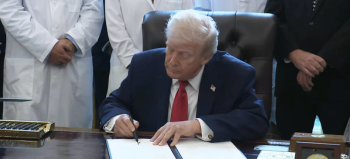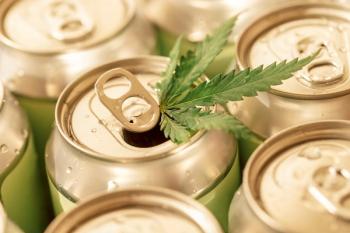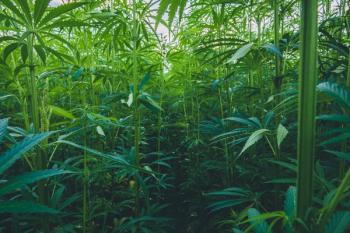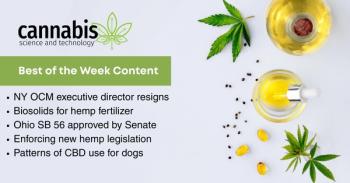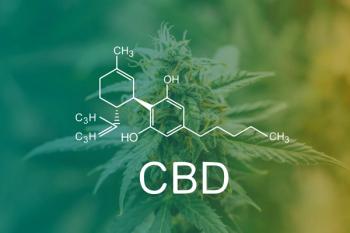
One CBD Company Looks to Innovation to Enhance Customers’ Cannabis Experience and Knowledge

Cannabidiol (CBD) has been a hot topic for several years now and it seems like you can buy CBD almost anywhere. As a consumer, how do you know that the CBD at your local drug store is the same quality at a cannabis or hemp retail store? Education is key to knowing the difference and finding a top-notch product. In this interview, Vince Sanders, founder and president of CBD American Shaman, discusses his company’s approach to cannabis retail, their main motivators for success, and his plans for continual expansion in the cannabis industry.
Could you tell us about your background and what first inspired you to start CBD American Shaman? What makes your company unique? Where did the name come from?
Vince Sanders: Growing up around entrepreneurs set me on the path to entrepreneurship. CBD American Shaman began from a calling to try to help my uncle who was terminally ill. Although I kind of stumbled into this business, once I decided to follow this calling, things moved fast. The name is tied to the intention to help people feel better, like a shaman does.
The main goal of CBD American Shaman has—and always will be—to help people feel better. We’re also always trying to bring the latest science and technology to the cannabis industry. One of the things we always say about our business is “nature enhanced by science.” We stand out in the industry because we place a huge emphasis on education. Educating our customers so they know how to best use what they’re purchasing and getting them the right dosage for their needs is super important to us.
Can you tell us about the entire process of the formation of your cannabidiol (CBD) products from seed to sale? How do you ensure constant quality and safety?
Sanders: We started with manufacturing oil in the beginning, expanded into extraction, and now grow our own hemp. We test any soil our plants are grown in for insecticides and heavy metals, and we continue testing throughout the development process: we test the plant materials while they’re growing and cured, we test the oil when it’s extracted, and we retest the finished products.
CBD American Shaman is reportedly the nation’s largest brick and mortar CBD retailer. What sorts of challenges have you had to overcome in the past and currently to reach that status?
Sanders: There have been so many challenges, and new challenges arise daily. It builds true resilience!Some of the challenges we’ve faced in the past include legal issues on a state-by-state basis as well as federally (before the federal government made CBD legal), plus the time and work we put in lobbying at federal and state levels to bring about change. Another challenge is banking–everything from getting a bank account to getting a business credit card to advertising. Advertising is a gray zone–some will work with you while others will not. While running and scaling any business is challenging, a business in this industry is infinitely harder.
Tell us about your use of nanotechnology to enhance hemp’s health-supporting effects and to increase the bioavailability of CBD.
Sanders: We actually sort of backed into it! I realized early on that the bioavailability of CBD oil is so low that you must use a high dosage, which makes it really expensive. The high price point made this product unavailable to the people who really needed it. But if you increase bioavailability, you get more efficacy from a smaller amount. Then more people can have access to it, it works better, and it even manifests differently sometimes. The best example I can think of is when we started working with cannabigerol (CBG). We initially were digging into CBG for its gut health properties, but once we used nanotechnology on CBG it resulted in helping gut health and providing a burst of clean energy.
Tell us about what a customer can expect with an in-store and online buying experience. How do you provide education and guidance?
Sanders: The in-store experience for our customers revolves around education and creating an inviting experience. We believe it’s necessary to educate our customers because even our great products are useless if they’re not being utilized properly. We prioritize each customer and make the time to teach, but also support them while using our products. We’re in it for the long run! We want to create relationships with our customers, which creates returning customers. We are also working on automated kiosks which will provide a self-guided learning track giving customers the option to choose.
Each store is designed to be a warm, inviting, and comfortable environment conducive for learning and encouraging customers to open their minds. It always comes back to education so we can best teach our customers how to use our products and ultimately set them up for success.
Our online experience differs in that we’re not able to provide as much education as we’d like for the time being (we’re exploring how we can improve this). We offer as much description and background as possible on each product, but it’s challenging to properly relay our message with so many Food and Drug Administration (FDA) regulations that hinder what we can and cannot say.
What types of products do you offer for pets and why?
Sanders: We have CBD tinctures, water-soluble CBD, and CBD treats for dogs, cats, and horses. People love their pets.If we can help provide some relief for any discomfort pets are experiencing, we’re definitely going to help.
How does your Compassionate Care program help your customers?
Sanders: CBD American Shaman offers ongoing discounts for those who really need our products but don’t have access. We offer these ongoing discounts to those who are low-income, and for veterans through the company’s Compassionate Care Program.
Can you tell us about your recent expansion into selling medical cannabis products?
Sanders: We started in Oklahoma first with a dispensary and moved into manufacturing and growing. Next, we bought licenses in Missouri for manufacturing. We’re essentially doing the same things in the tetrahydrocannabinol (THC) space as we’ve done in the CBD world, so all that education and experience has been an easy segue into the medical marijuana industry. The medical marijuana business itself is easier at times because there are more defined lines about what we can and cannot do. This means we’re not spending as much time and energy trying to make certain things happen that are often an uphill battle (as with the CBD industry). For example, I know I can’t advertise on TV.
What is the most important thing consumers should know about hemp and about CBD?
Sanders: Hemp needs more credit–it can be used to create supplements to make your life better and make you feel better, as well as create great replacement products for materials that aren’t environmentally friendly. I’d also love for people to recognize and experience how great CBD is! It’s an amazing cannabinoid that enables the body to operate the way it was designed to work because it works with the body’s endocannabinoid system.
What is special about the hemp plant? How have you used it to make a gentler impact on the environment?
Sanders: The hemp plant is very environmentally friendly by nature. It gives back to the soil, you don’t need to use insecticides because the terpenes naturally deter insects, and it uses far less water than cotton and other plants. About
Tell us about your work as part of the Board of Directors for US Hemp Roundtable. What have you seen accomplished and what is the organization currently working towards?
Sanders: The biggest thing was the 2018 Farm Bill, which made CBD and hemp officially federally legal after 81 years of prohibition–that’s the biggest lift of all time! And on an ongoing basis, the organization is still working for federal approval on different levels, such as a bill to Congress that proposes removing CBD from the FDA’s authority so it can finally be named a dietary supplement. If this were passed, it means the FDA would have no power over it. Additionally, we’re always facing issues at a state level. The organization’s main goal is to ensure quality, legal products are being created nationwide that are safe for customers.
Why is It important to be certified by the US Hemp Authority?
Sanders: It's a very thorough inspection–it means you’re doing everything above board and have good manufacturing processes for all supplements. That’s exactly why you don’t see many companies with it, because unfortunately not many work at that high quality level the US Hemp Authority requires.
What are you most hoping to see in the cannabis and hemp industries in the next few years?
Sanders: Normalization–an adult conversation around marijuana. It’s far less damaging than tobacco and alcohol, yet we can deal with those. This would comprise decriminalizing, legalizing, and allowing businesses in this industry to operate as a normal industry, meaning normal banking and other needs like that.
References
Newsletter
Unlock the latest breakthroughs in cannabis science—subscribe now to get expert insights, research, and industry updates delivered to your inbox.

